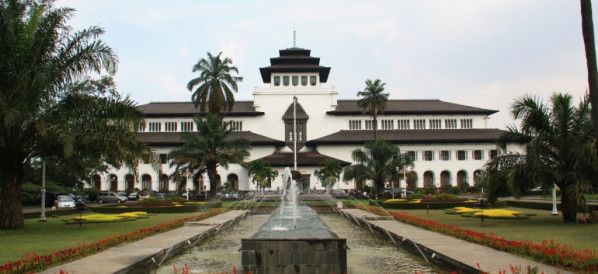 8 Terms
8 TermsHome > Terms > English (EN) > International Telecommunications Union (ITU)
International Telecommunications Union (ITU)
The ITU saw its inception in 1865 when 20 countries jointly signed the framework agreement at the International Telegraph Convention to adopt common rules and standard equipment for transmitting telegraph messages across international lines. The International Telegraph Union was launched to provide a forum to turn this agreement into a living framework through the evolution of international communications technologies, facilitating dialogue and enabling amendments to the initial agreement. Within a matter of years, the International Telegraph Union was busily devising legislation aimed at developing international standards for telephony and radio communications, further solidifying its role as the primary body governing and promoting international communications. In 1932, the Telegraph Union merged with the International Telegraph Convention of 1865 and the 1906 International Radiotelegraph Convention into one agreement called the International Telecommunications Convention, and in 1934 changed its name to the International Telecommunications Union (ITU), assuming responsibility for promoting and standardizing all international communications.
The ITU became a special agency of the United Nations in 1947 under an agreement aimed at modernizing the union. In 1989, at a Plenipotentiary Conference held in Nice, France, the ITU took responsibility for spear-heading technical telecommunications assistance to developing countries, placing such activities on a par with their traditional standardization and coordination activities. Through the Telecommunications Development Bureau, established in 1990, technological developments in telecommunications are met with new initiatives from the ITU aimed at integrating these innovations into the infrastructures of developing countries, thereby connecting them to a broader world network.
In early 2000s, the ITU took on the leadership role in the development of a Global Information Infrastructure (GII), an international network aimed at providing universal access to modern telecommunications and information technologies so as to level the playing field between nations and help integrate and further the global economy. In this way, the ITU worked diligently to bridge the digital divide, a contemporary situation within what the ITU refers to as the "telecommunications gap." The ITU saw telecommunications infrastructure as the principal problem underlying the digital divide, and promoted itself not so much as a regulator but as a facilitator for different policymakers from across the world to hammer out compromises, insisting that its regulatory scope was limited to ensuring open access to telecommunications.
- Part of Speech: proper noun
- Synonym(s):
- Blossary:
- Industry/Domain: Organizations; Telecommunications
- Category: United Nations; General telecom
- Company:
- Product:
- Acronym-Abbreviation:
Other Languages:
Member comments
Terms in the News
Billy Morgan
Sports; Snowboarding
The British snowboarder Billy Morgan has landed the sport’s first ever 1800 quadruple cork. The rider, who represented Great Britain in the 2014 Winter Olympics in Sochi, was in Livigno, Italy, when he achieved the man-oeuvre. It involves flipping four times, while body also spins with five complete rotations on a sideways or downward-facing axis. The trick ...
Marzieh Afkham
Broadcasting & receiving; News
Marzieh Afkham, who is the country’s first foreign ministry spokeswoman, will head a mission in east Asia, the state news agency reported. It is not clear to which country she will be posted as her appointment has yet to be announced officially. Afkham will only be the second female ambassador Iran has had. Under the last shah’s rule, Mehrangiz Dolatshahi, a ...
Weekly Packet
Language; Online services; Slang; Internet
Weekly Packet or "Paquete Semanal" as it is known in Cuba is a term used by Cubans to describe the information that is gathered from the internet outside of Cuba and saved onto hard drives to be transported into Cuba itself. Weekly Packets are then sold to Cuban's without internet access, allowing them to obtain information just days - and sometimes hours - after it ...
Asian Infrastructure Investment Bank (AIIB)
Banking; Investment banking
The Asian Infrastructure Investment Bank (AIIB) is an international financial institution established to address the need in Asia for infrastructure development. According to the Asian Development Bank, Asia needs $800 billion each year for roads, ports, power plants or other infrastructure projects before 2020. Originally proposed by China in 2013, a signing ...
Spartan
Online services; Internet
Spartan is the codename given to the new Microsoft Windows 10 browser that will replace Microsoft Windows Internet Explorer. The new browser will be built from the ground up and disregard any code from the IE platform. It has a new rendering engine that is built to be compatible with how the web is written today. The name Spartan is named after the ...
Featured Terms
Gedung Sate
Gedung Sate is a neo-classical building mixed with native elements. Once the seat of the Dutch East Indies department of Transport, Public Works and ...
Contributor
Featured blossaries
Browers Terms By Category
- General art history(577)
- Visual arts(575)
- Renaissance(22)
Art history(1174) Terms
- ISO standards(4935)
- Six Sigma(581)
- Capability maturity model integration(216)
Quality management(5732) Terms
- Material physics(1710)
- Metallurgy(891)
- Corrosion engineering(646)
- Magnetics(82)
- Impact testing(1)
Materials science(3330) Terms
- SSL certificates(48)
- Wireless telecommunications(3)
Wireless technologies(51) Terms
- General Finance(7677)
- Funds(1299)
- Commodity exchange(874)
- Private equity(515)
- Accountancy(421)
- Real estate investment(192)





